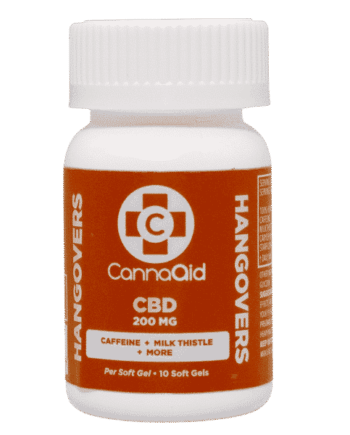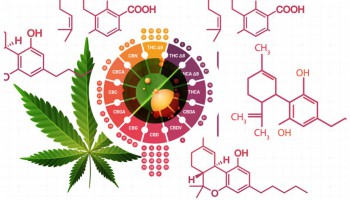
Softgels can be described as an oral dosage. It is composed of a gelatin-based outer shell and a liquid inside. These capsules are made of a mixture of gelatin, water and glycerin. Softgels, unlike pills can be taken with or without food.
Gelatin
Softgels, a type of oral capsule made from gelatin, contain a gelatin shell and a liquid fill. They are made of gelatin, water and glycerin. They are made from gelatin and water, but also contain an opacifier as well. They are widely used in the delivery of a variety medicines. Softgels contain a variety of vitamins and other compounds, including vitamins A and C, zinc, sulphur, and chromium.
Softgel gelatin capsules provide many advantages over other oral dosage forms. Because of its lubricating nature, it is easier for drugs to enter the body, especially for those with low soluble. Low-dose medications can also be delivered in softgel form. The softgel form also minimizes dust production. However, the softgel version has its own challenges.

Water
Softgels are small, water-filled tablets, with an outer shell composed of a gelatin or potato starch matrix. The matrix includes an adhesive, plasticizer and water. The filling is located between these pockets. Rotary Die Encapsulation is the process used to make softgels.
A soft gel's gelatine shell cannot contain all of the ingredients that a tablet must contain. Due to their water soluble nature, some substances cannot be contained in soft gels. You can also add sodium lauryl sulfurate or alginates to the gelatin to increase the water penetration.
Plasticiser
Softgels are a type of oral dosage form for medicines, composed of a gelatin based shell surrounding a liquid fill. These capsules are usually filled with water and other substances, such as sorbitol or glycerin. The use of plasticisers will ensure that the ingredients are mixed uniformly, giving rise to capsules that have better stability.
Many softgels can be found in pure vegetarian and vegetarian versions. Hydroxypropyl Methylcellulose is used in the former. It is made from seaweed, wood pulp and raw cotton. Because of its superior stability against environmental changes, HPMC is used to make softgels. The formula makes up the fill. The polymer, which is a suspending ingredient, helps to keep the fill solution in place. Polyethylene glycols and lecithin are also used as emulsifiers for the raw ingredients.

Opacifier
Softgels, a type oral dosage form, consist of a gelatine-based shell that surrounds a liquid filled. The shell is made of gelatin. These materials work together to protect the contents inside the capsules from degradation due to light. Softgels have seen a rise in demand because of the increasing prevalence of heart disease and chronic conditions.
Water is the primary solvent in soft gelatin capsule production and forms the outer shell. Water makes up thirty to forty percent of the overall wet gel formulation. Water is used in several different processes to enhance the quality of the product. Opacifiers protect the soft capsule against light and increase shelf-life, while flavoring agents mask the taste.
FAQ
How can CBD products be successfully promoted by companies in a regulatory-compliant way?
The FDA does not regulate hemp for its agricultural commodities. The Controlled Substances Act regulates all cannabis derivatives, including marijuana. To date, there are no specific regulations for CBD.
CBD is legal in 29 states. However, federal law still considers CBD illegal. Businesses looking to sell CBD products are left in uncertainty.
The FDA also has guidelines for how CBD products should be advertised. The FDA requires that all CBD products clearly disclose their THC content. Without scientific evidence, companies cannot claim CBD treats certain medical conditions.
Additionally, the FDA requires manufacturers submit information about manufacturing practices and quality control. They also require companies to conduct clinical trials to prove safety and efficacy.
Companies should consider these factors when developing their own marketing strategies.
Is CBD a good investment?
The market for hemp-based products continues to grow as people become increasingly aware of their benefits. According to some estimates, there will be 1 billion dollars worth of hemp-based products in stores by 2022.
Market growth is expected at an annual rate in excess of 20% up to 2020, when it will reach $2.5Billion.
Hemp oil has been used in many beauty products and health care products including creams, lotions.
There are many CBD-infused food items, such as snacks, dog treats and pet foods, that can be produced by companies.
CBD is currently legal in all 50 US states. This may change quickly. CBD is legal in all 50 states, but more research will be conducted to determine its potential uses. Businesses will have an easier time operating legally.
These are just a few of the many reasons CBD investment can be lucrative.
Is the CBD market saturated?
CBD is growing at a rate of more than 25% per year. This growth rate is expected to continue at least for five more years. The industry is forecast to grow from $2 Billion to $5 Billion by 2020.
Two companies currently dominate the CBD market - GW Pharmaceuticals & Canndoc Ltd. Both companies are focused on the development of pharmaceutical-grade CBD products. They have not been very effective so far. Both of them are having difficulty gaining traction in today's marketplace.
Cannabidiol is an extract of cannabis with less than 0.3% CBD. It does not cause any psychoactive effects. It can be used to treat epilepsy, and other medical conditions. It is also commonly used as a dietary supplement.
There are many varieties of CBD products. Some CBD products are made with whole plants extracts, others use CBD isolates.
These products all have one thing in common: they contain low amounts of THC.
These products are legal under US federal law. You will still need to follow local laws if you are selling CBD products. You should always verify your state's regulations for the sale of CBD products.
In addition, there are several states where CBD products are illegal. These are California, Colorado. Florida. Mississippi. Missouri. New York. North Carolina. Ohio. Oklahoma. Oregon. Rhode Island. South Dakota. Texas. Utah. Virginia. Washington.
CBD products are not recommended for people who live in these states.
Statistics
- however, one study also found that these effects were virtually abolished when the original media (a nutrient broth agar) was replaced with one containing 5% blood (increasing the minimum concentration to ~160 μM CBD) [179]. (ncbi.nlm.nih.gov)
- OralWhere HED is the human equivalent dose, and Km is a correction factor estimated by dividing the average body mass (BM) of the species (60, 0.020, and 0.150 kg for 11 humans, mice, and rats, respectively) and by its surface area (see: Nair et al. (ncbi.nlm.nih.gov)
- HR −16 mmHg; 95% CI −26, −6; I2 = 92%) (ncbi.nlm.nih.gov)
- While the primary injury may not be treatable, interventions that attenuate secondary sequelae are likely to be of benefit [203].Only one study (ncbi.nlm.nih.gov)
- A recent systematic review of human trials also reported that individuals with epilepsy receiving CBD (5–20 mg·kg−1·day−1) were more likely to experience decreased appetite than those receiving placebo (i.e., ~20 vs. 5% of patients) (ncbi.nlm.nih.gov)
External Links
How To
How to Sell CBD Oil At Home
CBD oil is one the most sought-after products online. CBD oil is made from hemp plants. It has been used for centuries as a treatment for inflammation and pain. The many benefits of CBD include the treatment of anxiety, depression and chronic pain. However, many people are hesitant to use CBD because they do not know how to start. This article will give you some helpful tips for selling CBD oil at your home. You won't have to worry about legal issues.
Steps to Selling CBD Online
-
Find out if your state has legalized the sale CBD oil. If your state doesn't allow the sale, then you can look for other states that do. You should check with your local health department before beginning any business related to CBD oil.
-
Check that your site is compliant with FTC regulations. There are two types of sites for CBD sales; those that comply with FDA guidelines and those that don't. All sites that sell CBD oil need to follow the guidelines set by the U.S. Food and Drug Administration. This means that they cannot claim CBD helps with medical conditions unless scientific evidence supports their claims. They must keep track of all transactions made through their website.
-
A good understanding of CBD oil will help you understand its true meaning. While some people believe CBD refers to cannabidiol, this is not true. CBD oil can also be used for anything extracted from cannabis plants. Talking with your doctor will help you determine if CBD oil is right for you.
-
Determine whether you want to sell wholesale or retail. Wholesalers can buy large quantities of CBD oil to resell to retailers. Wholesalers can purchase small amounts of CBD oil and then sell it to retailers. Wholesale prices are typically higher than retail.
-
Decide whether or not you would like to start a drop-shipping business. Drop shippers deliver items directly from suppliers to customers. They can handle everything, from customer service to delivering orders. Dropshipping can be a great way to start a business, as it requires very little upfront investment.
-
Pick a manufacturer. Numerous companies offer CBD oil for alternative medicine. Different flavors and strengths are available from different manufacturers. Many companies offer free trials. Start looking around until you find a company that fits your needs.
-
Set up a Facebook profile. Social media plays an integral role in marketing. Facebook alone allows you to reach millions potential customers. Start a new page and provide information about your company.
-
Promote your brand. Once your Facebook page is established, you can promote your brand using other social media platforms including Instagram and Twitter.
-
Sell your products. You must decide the product type you wish to sell once you have decided you want CBD oil for sale. Do you want to sell only drops or tinctures? How much would you want to charge per bottle? What packaging would you choose?
-
Write a detailed description of each product. Include all of the ingredients and any warnings that may be associated with using CBD oil.
-
List the prices of your products. You should keep in mind that your product's price will vary depending on its strength. For example, a 10ml bottle of 100mg CBD oil costs $30, while a 500mg bottle costs $120.
-
Add images to attract more attention. Post images of your products so that people understand what they are buying. You can even include videos if you wish.
-
Optimize your store. You must ensure your store is professional and well-organized. Bad design could result in customers losing interest.
-
Find ways to improve your reputation online. People are always searching for reviews about products on Google. Customers could be turned off if there aren't positive reviews.
-
Offer discounts. Not everyone likes paying full price for things. Your profits can be increased by giving discounts
-
Use email marketing. Email marketing allows you to send promotional messages to people who have already expressed an interest in purchasing your products. This is a great way for you to build relationships with your customers.
-
Optimize your website. It is important to have a functioning website when you are starting a business. Your website should offer useful information about the products and services you offer.
-
A professional can help you manage your company. There are many tasks that go with running a business. If you don’t hire someone else to handle some of these tasks, you can waste time trying out to finish certain tasks yourself.
-
Get started! Now that you've read this article, it is time to get started with your CBD Oil Business. Good luck!